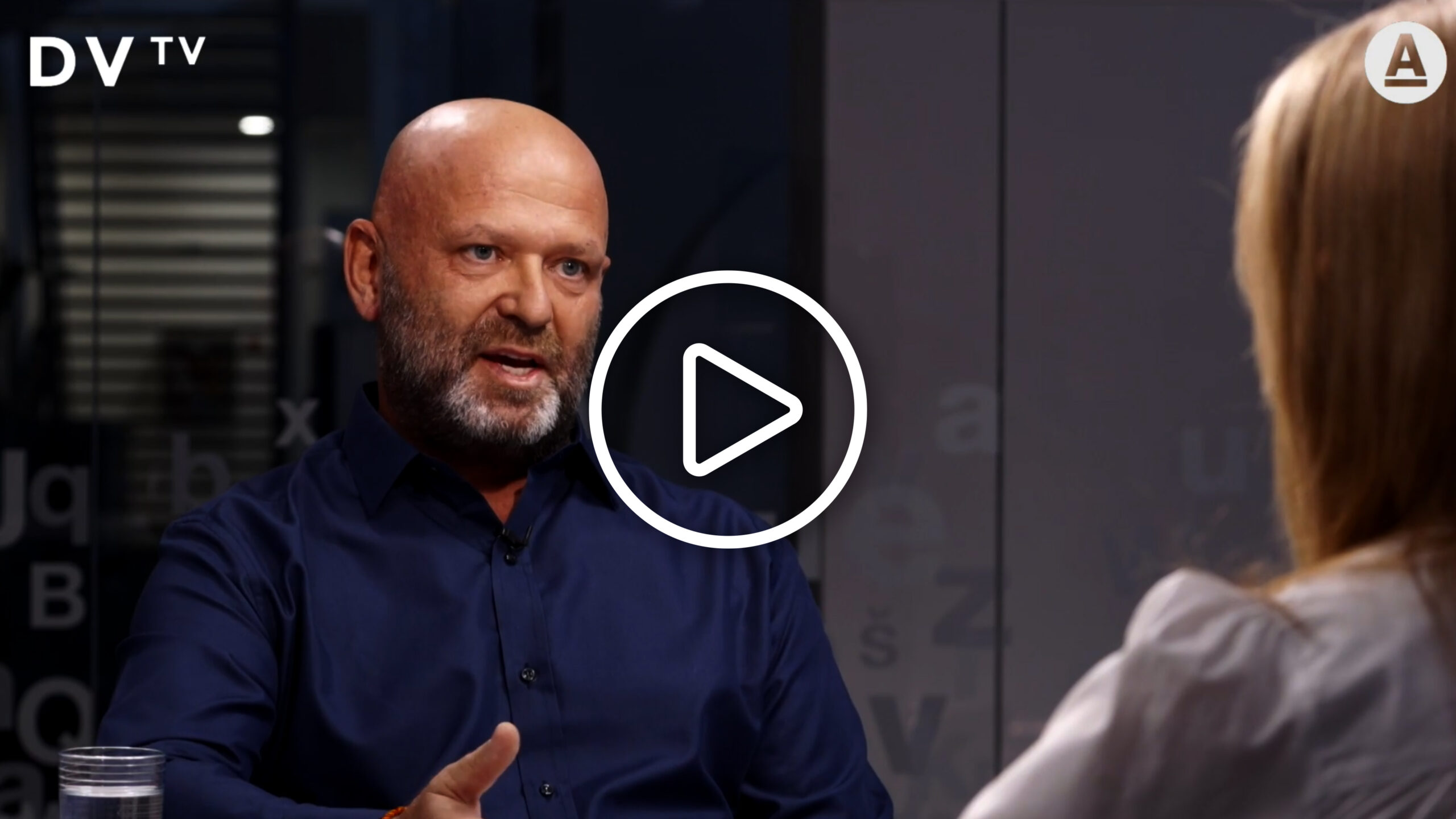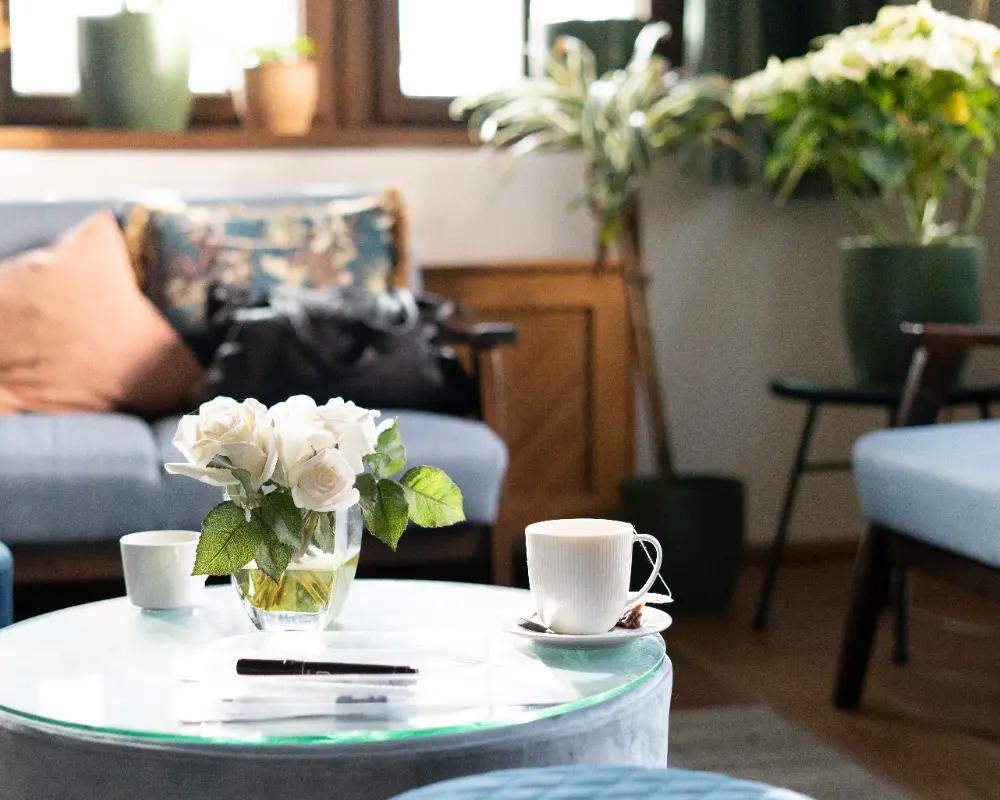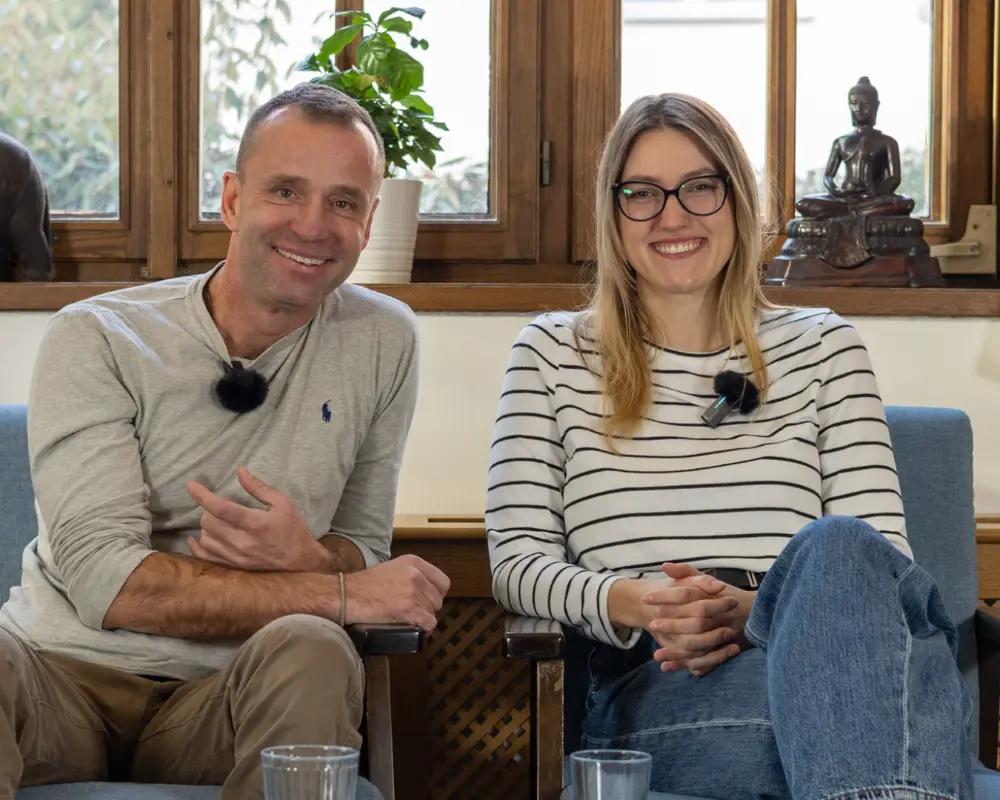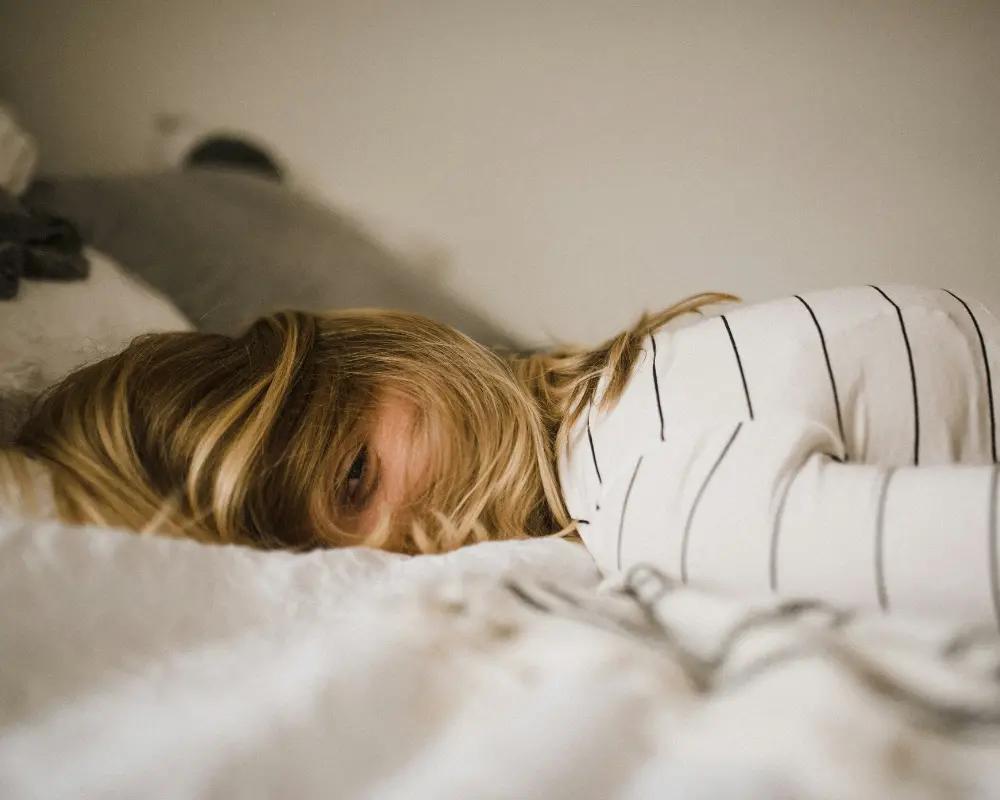Interview with the founder of the NEO Center with Libor Votruba for DVTV.
Transcript of interview
Speaker: Daniela Drtinová
From the bottom of addiction to helping others. He underwent treatment in the Republic of South Africa, meditated in Thailand and decided to bring similar treatment methods to the Czech Republic. Libor Votruba, operator of Prague's yellow baths and organizer of Christmas markets, among other things, accepted the invitation to DVTV.
He is the best hunter out of poachers.
I think sometimes yes, but he needs professional help for that.
As a recovered alcoholic and drug addict, you and your former therapist founded a clinic that helps people with the same problem. Is your NEO Center different from other clinics?
I think that yes. Especially by just connecting, let's say, the personal experience of someone who has gone through drug addiction, alcohol addiction, with expertise, with people who do very good therapy, with meditation teachers, and so on.
How does the client-therapist relationship flow into a business relationship?
We did not go straight into a business relationship. He was my therapist for about 2.5 years and at the same time I myself went to many sessions of Alcoholics Anonymous, I started meditating and there were many more things that I had to start doing for myself. After several years, when we ended the relationship - client / therapist - we decided to found the NEO Center. Less than a year ago, however, our paths diverged, as sometimes happens in partnerships, and we each followed a slightly different path. Anyway, it was a friendly parting.
You wanted to set up a clinic for foreigners as well, is it already working? Because covid made everything a bit more complicated.
We started a clinic for foreigners just before Covid and that made life very difficult for us because traveling was not possible. We suddenly had no use for the building we rented, and we wondered what to do next. At that time, we tried to offer treatment residential programs for people who suffer from mental problems, but in this direction we were great pioneers in the Czech Republic, because people are not yet used to going to a residential clinic with problems of this type. In the case of addictions, it is completely different. Anyway, I think that such a clinic will have its place here one day.
So is the clinic for English-speaking clients now operational?
Yes. We don't have that many clients yet, so we combine Czech and foreign clients together when needed.
They leave their country, which on the one hand can be strange, but I can imagine why they do that, for example they say they are going on vacation and don't have to explain where they went to their wider circle. But what I can think of is whether this change of environment is always desirable, because you were also treated abroad, but after your return there was a relapse .
Addiction treatment, say those 6 to 8 weeks, is only the beginning. It's just that we shoot an arrow in the direction that person has to go. But he has to work on it all his life and most people don't get it, just like it didn't happen to me and I thought that after a month of treatment I was actually cured and it didn't matter. And if you are being treated at home or in South Africa or anywhere else, it doesn't matter. The relapse happened because I didn't follow what I was told
in the rehab they told me to do because I started thinking again like most people who come out of rehab that somehow they can handle it on their own and that they can handle it on their own in the way they tried to handle it before.
What didn't you do, what should you have done?
I didn't go to Alcoholics Anonymous meetings, for example.
I went to some therapy, but not that often, and my life was very broken. I've dealt with a lot of the consequences of my drinking, whether it's broken family, broken work, broken relationships, everything, so the consequences are very painful. I underestimated what I was supposed to do and took it lightly, and precisely because I didn't do it 100%, but maybe only 30%, that's how the relapse happened.
During your addiction, you became the culprit of a traffic accident under the influence of alcohol. What would your 2007-11 self, when your addiction was at its worst, say about you?
Hmm. My self today would say that I was a different person than I thought at the time. Addiction forces a person to be in a huge disillusionment, because in order to be able to accept himself, to be able to look at himself, he has to lie about himself, and I thought that even though I drink and take drugs, that I am still a good person, that I keep doing good things. But then when I looked back at a lot of the things I did and I go through my actions, I find that I was not a good person at all, or only partially and I did a lot of things wrong, I bent myself and my morals. I bent my values, and so does almost everyone who is addicted to alcohol or drugs or anything else.
So you felt like you were hurting the people around you?
I want to say one thing, I hurt myself the most in the first place. Every addicted person hurts themselves the most, but before that I want to say one more thing that the addiction comes from some inner pain. It's a huge mistake what the public thinks, or most people who don't understand, who think that a person who takes drugs or drinks that it's their decision. It's not, it's something that comes out of a huge internal emotional pain that the addict has, they have it because of some trauma or something they've been through and it's not really their choice. I always tell our clients that they are not responsible for being an addict or alcoholic, but they are responsible for getting treatment. If I come back to your question, yes, I hurt myself the most, I hurt my family, my surroundings, my children, who, although I really can't admit it, have some traumas.
So the emotional pain is such that the individual needs to stick to it and will actually do anything to get rid of it?
For me, it probably didn't come until I was in my thirties. The pain didn't come to me until later in life. It really comes to someone at an early age. I'd say she's not unbearable. In the beginning, a person who takes a drink or a drug, or ingests / uses any other thing (telephones, gambling, sex or pornography) feels the relief that these things bring him. Suddenly a person feels whole, he feels respected and full of value, he feels that the people around him like him, he feels good, and I have to say that for many people this feeling has saved their lives, because drugs actually work like a medicine from the beginning, it's just that the medicine wears off after a while. First it's fine, then it's "fine with problems" and then it's just "problems".
You told Idnes.cz that you didn't want to go to Bohnice because of your ego. Didn't you want to go to a place where, according to you, the homeless go? Was it, would you say, a lesson for your ego as well?
In this context, I was interested in the fact that the word ego is heard there at all .
Certainly. The ego is a very powerful player in addiction. It's funny, but I tried to drink better wines, for example, because I thought that if I drank better wines and walked around in a suit, I was better than the people on the street. But I wasn't any better at all. Maybe I was much worse.
Can one step away from addiction be the fact that a person steps out of his comfort zone, reaches the bottom and perhaps even goes to sit among the homeless?
Definitely yes. I think that humility is one of the basic steps that a person must acquire in order to get rid of addiction. Arrogance is the biggest enemy.
Did meditation help you reduce your ego? Was it perhaps also the path that you then decided to follow?
Definitely yes. When I started meditating, only the environment in which one meditates breathes on you. I went to Thailand to find a meditation center. I had no idea what I was getting myself into and I must honestly say that I imagined the process differently. I thought that during the few weeks that I would be there, I would somehow let the bad out of me and pour in only the good. I also thought that there must be some magic in it, that if I do it completely 100%, then everything will change, but I was quite wrong. It's a long run. Just the environment where one meditates evokes the humility you are asking about, because I was given a room in which I had a blanket on the floor and otherwise there was nothing else in that room. I could only sleep 6 hours a day. At 6 o'clock in the morning and then at 11 o'clock in the morning there is food and then no more food, so there are really a lot of things that automatically induce humility. I've already completed 23 of these retreats. It's the same at Alcoholics Anonymous meetings, where we meet in the basement, all the social groups you can imagine, on rickety chairs and a umakart table.
You said that you didn't do what you were supposed to and logically there was a relapse. You didn't have that regularity, that you didn't come to sessions often, that your life was broken. Is it really that important to go somewhere on a regular basis or regularly to those Alcoholics Anonymous sessions?
I mean after that, when a person has already undergone acute treatment for several weeks on residential treatment.
I think that if you are a real alcoholic and a real addict, yes, you really need long-term treatment. The disease is progressive. Our theory is that, for example, alcoholism has nothing to do with alcohol as such.
I don't quite understand this?
Alcoholism is just that disease, that's the pain that you have inside and you use that alcohol as medicine and most people out there don't understand that because they think that you drink because you want to drink and that you can stop at any time. But it's not like that. It's just a medicine for you, and that medicine somehow works for you, whether it's alcohol, or it's some drug, or it's some kind of powder. It just works for your inner pain. I think I didn't give the treatment as much as I should have before. I always tell our clients to give it like 20% of the time you gave drinking or farting. That will be enough to cure you and one just has to. The disease is treacherous and deadly, and few can recover from it. I am extremely lucky to have gotten out of it.
How many years has he been abstinent?
Eleventh year.
After a person goes through the residential treatment of several weeks, what is important is that the subsequent help to oneself and with the help of others is really effective. Is there a need to get an order of regularity? And to solve some of the things that actually bother a lot of people deeply.
It is exactly what you say. The problem is not the alcohol. The problem is somewhere inside, that is, we have to start healing, as it were, ourselves, so we stop drinking for a while. Everyone succeeds in this, but if he doesn't heal or heal what he has inside him, the pain he has inside him, sooner or later he will start again. So it's about reminding ourselves again of who we are. That we're just alcoholics, because I keep saying I'm an alcoholic and I'm addicted to this day, because if I had a drink today, it's not the same as before, I've been drinking for x years, but I'd probably be in it in a week the state I was in back then. So, once an alcoholic always an alcoholic. And that disease simply needs to be treated long-term, and the treatment consists in cleaning your desk, becoming a better person. You do more good, you do less bad things, or you try to. And a person should also start believing in something higher than just himself.
This is what former alcoholic Michaela Duffková said on DVTV about relapse.
When a difficult situation occurs, the brain automatically remembers that sometimes we solved the situation in the simplest possible way and sometimes it is very difficult to balance it and not cross that line and not reach for that bottle again.
Does this ever happen to you in a tense situation, that the thought comes to you? I know that you had a difficult situation with the Christmas markets a year ago, when they were canceled just before they started. Do you ever have to fight the thought of a bottle in these situations?
I don't now. But of course it can happen at any time. But I believe not anymore, because I do so much for myself as part of the treatment so that it doesn't happen to me. I am very happy for that, that even in the most difficult moments in my life, be it personal or professional, I have had breakups, divorces, bad business decisions, I still don't think about alcohol and I don't drink.
Each of us lives in temptation, because doing bad things is very often easier than doing good things. A simple example of what I mean - it's easier to just eat chips now than to come up with carrot recipes. The temptation is very strong. Is the will to do better things that much harder? Is it what pulls you to bite and do things that are not comfortable and pleasant?
Yes, sure. I do a lot of things that I need, not what I want. For example, I really don't like meditation like I really don't like it because it's not easy. I just came back a few days from Thailand from another meditation retreat where I spent 8 days alone in one room. With the fact that I don't use the phone and stuff like that. It's extremely difficult, and on the other hand, I know that this is something that helps me immensely and pushes me forward, not running away from myself or from the painful things that I may be going through within myself. Today, after everything I've been through, I know that I will never bury anything inside myself and everything will always come out.
And I'm glad that the negative things often come out during that meditation. I can look at them and I can try to clean them somehow.
You were also previously treated in South Africa, participated in twenty-three retreats, and then also built a meditation center in Prague, which operates on the same principle as in Thailand in the form of donations from its participants. How generous are the Czechs?
They are not, and I am glad that I can be even more generous. Most of the cost is on me, but I honestly have to say that as long as I can, I don't mind. In the last 2 years, when I was really not doing well at work, I was very afraid that I would have to close the meditation center, and I would really hate to do that. I have such a nice experience from Thailand. After meditation, I go with the monks to the villages where they go to beg and I follow them and bring them what they beg for. They beg a lot of things from the really poor people who are in the villages. And they then tell me to take these gifts to some meditation center. I will mention that it is not necessary, that there are many westerners in that center who can buy basically everything and have enough of everything. And they say, but we don't do it because you think. We do it because we give those villagers the opportunity to give something. That is the most valuable thing you can do in life.
Will there finally be Christmas markets this year?
I don't know, I'm afraid, but maybe yes. There are a lot of things happening in the world that can affect anything, but I'm 90% confident that it will all work out and yes, there will be Christmas Markets.
So I wish all of us to be and I wish you good health and a lot of strength in all your actions. Thanks. Goodbye.
Thank you very much for the nice interview.
BE IN THE IMAGE
Information, articles and news
Do you need help?
You can send us a message or call us every day from 8 a.m. to 8 p.m. +420 228 226 101
This website is using cookies
You can either allow them all with the "I agree to all" button below, refuse or set the "Detailed settings" in detail. You can also change the selection later. More information about cookies in the Cookie Policy .





